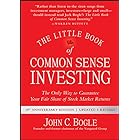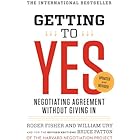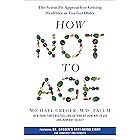These promotions will be applied to this item:
Some promotions may be combined; others are not eligible to be combined with other offers. For details, please see the Terms & Conditions associated with these promotions.
Your Memberships & Subscriptions

Download the free Kindle app and start reading Kindle books instantly on your smartphone, tablet, or computer - no Kindle device required.
Read instantly on your browser with Kindle for Web.
Using your mobile phone camera - scan the code below and download the Kindle app.



 Audible sample
Audible sample The Number: A Completely Different Way to Think About the Rest of Your Life Kindle Edition
The often-avoided, anxiety-riddled discussion about financial planning for a secure and fulfilling future has been given a new starting point in The Number by Lee Eisenberg. The buzz of professionals and financial industry insiders everywhere, the Number represents the amount of money and resources people will need to enjoy the active life they desire, especially post-career. Backed by imaginative reporting and insights, Eisenberg urges people to assume control and responsibility for their standard of living, and take greater aim on their long-term aspirations.
From Wall Street to Main Street USA, the Number means different things to different people. It is constantly fluctuating in people’s minds and bank accounts. To some, the Number symbolizes freedom, validation of career success, the ticket to luxurious indulgences and spiritual exploration; to others, it represents the bewildering and nonsensical nightmare of an impoverished existence creeping up on them in their old age, a seemingly hopeless inevitability that they would rather simply ignore than confront. People are highly private and closed-mouthed when it comes to discussing their Numbers, or lack thereof, for fear they might either reveal too much or display ineptitude.
In The Number, Eisenberg describes this secret anxiety as the “Last Taboo,” a conundrum snared in confusing financial lingo. He sorts through the fancy jargon and translates the Number into commonsense advice that resonates just as easily with the aging gods and goddesses of corporate boardrooms as it does with ordinary people who are beginning to realize that retirement is now just a couple of decades away. Believing that the Number is as much about self-worth as it is net worth, Eisenberg strives to help readers better understand and more efficiently manage all aspects of their life, money, and pursuit of happiness.
Customers who bought this item also bought
Editorial Reviews
From Publishers Weekly
Copyright © Reed Business Information, a division of Reed Elsevier Inc. All rights reserved.
Review
-- MoneySense
"[Eisenberg's] tips are timely for millions of baby boomers who are hurtling toward retirement with little sense of what they want from it or how they'll get along once they no longer bring home a paycheck."
-- Hartford Courant
"Today's hottest personal finance book is Lee Eisenberg's The Number...read The Number, think about the Number."
-- Dallas Morning News
"An important book, one that illuminates the appalling mistakes that many baby boomers are making as they approach later life."
-- Wall Street Journal
About the Author
From AudioFile
Product details
- ASIN : B000FCKO2M
- Publisher : Free Press; Reprint edition (January 3, 2006)
- Publication date : January 3, 2006
- Language : English
- File size : 927 KB
- Text-to-Speech : Enabled
- Screen Reader : Supported
- Enhanced typesetting : Enabled
- X-Ray : Enabled
- Word Wise : Enabled
- Print length : 288 pages
- Page numbers source ISBN : 0743270320
- Best Sellers Rank: #1,146,589 in Kindle Store (See Top 100 in Kindle Store)
- #95 in Social Science Reference
- #281 in Social Sciences Reference
- #679 in Retirement Planning (Kindle Store)
- Customer Reviews:
About the author

Lee Eisenberg has enjoyed a colorful and distinguished career on both the creative and business sides. As the editor-in-chief of Esquire magazine, he led the publication to numerous national magazine awards in diverse categories such as General Excellence, Reporting, and Design. He was also the founding editor of Esquire in the U.K.
In 1991, Eisenberg was recruited to be one of six founding partners of the Edison Project, an initiative to design a business and academic plan for a system of world-class schools across the country.
In 1995, Eisenberg joined Time Inc. where, as a consulting editor, he helped Time magazine launch a series of initiatives, including Time.com; Time for Kids; special issues on a number of topics; and The TIME 100, a collaboration with CBS News that chronicled the most influential men and women of the 20th Century.
In 1983, he wrote "Breaking Eighty: A Journey Through the Nine Fairways of Golf," a charming expose of the physical and psychological perils of the game. The book was praised (apolitically) by Rush Limbaugh.
In 1999, Eisenberg was named executive vice president and creative director at Lands' End, the direct merchant, where he oversaw print and online creative efforts, as well as the company's national advertising, marketing, and public affairs activities. He resigned in 2004 to begin work on "The Number: A Completely Different Way to Think About the Rest of Your Life," which "Business Week" named one of the Top 10 Career Books of 2006. "The Number" earned a place on numerous national best seller lists, including the "New York Times,"" The Wall Street Journal," "Business Week" and "USA Today," and has been published internationally.
His next book was "Shoptimism: Why the American Consumer Will Keep on Buying No Matter What," which was published in 2009 by Free Press/Simon & Schuster and was widely cited for its insights into both the marketing and customer sides of American consumerism.
His latest book is "The Point Is: Making Sense of Birth, Death, and Everything in Between," published by Twelve, an imprint of the Hachette Book Group. It offers a fascinating, modern take on human history's oldest questions: Why are we here? What does it all mean? Eisenberg draws on a fascinating array of philosophers, psychologists, poets, novelists, and everyday people to advance a provocative theory on how we attempt to explain ourselves to others. The book was named one of the ten-best titles in its category by Publishers Weekly.
Eisenberg has been a visiting scholar at the University of Pennsylvania, and was one of the founding fathers of Rotisserie League Baseball, the forerunner of fantasy sports. He divides his time between Chicago and New York City. For more information and updates, including an ongoing blog, visit LeeEisenberg.com.
Customer reviews
Customer Reviews, including Product Star Ratings help customers to learn more about the product and decide whether it is the right product for them.
To calculate the overall star rating and percentage breakdown by star, we don’t use a simple average. Instead, our system considers things like how recent a review is and if the reviewer bought the item on Amazon. It also analyzed reviews to verify trustworthiness.
Learn more how customers reviews work on AmazonCustomers say
Customers find the book enjoyable and entertaining, with one review noting its thorough research and practical suggestions for change in thinking and behavior. Moreover, they appreciate its thought-provoking and humorous approach, with one customer highlighting how the clever turn-of-phrase keeps it light-hearted. However, the book receives mixed feedback regarding investment knowledge, with one customer noting it's not a how-to investment guide.
AI-generated from the text of customer reviews
Select to learn more
Customers appreciate the content of the book, with one customer noting its thorough research and another highlighting its practical suggestions for change in thinking and behavior.
"...It's a great wakeup call for anybody in their 30s, 40s, and 50s, who are approaching retirement and need sound guidance on what to do and how to..." Read more
"...The book is really more philosophical than financial...." Read more
"...Basically, Eisenberg nailed it. I think he opened a subject of tremendous import for the next several decades...." Read more
"...It is not preachy, but makes practical and practicable suggestions for change in thinking and behavior...." Read more
Customers find the book enjoyable and entertaining to read.
"Great read by somebody not in the financial industry. He is a journalist and editor, so the book is thoroughly researched...." Read more
"...happen so that more people will be ready for retirement, it's a fascinating read." Read more
"...clever puns, double entendre, and witticisms, make this book entertaining even at this length and decidely worth the small investment of time and..." Read more
"...2. The author is very entertaining and has many interesting stories and examples...." Read more
Customers find the book humorous and thought-provoking, with one customer noting how the clever turn-of-phrase keeps it light-hearted.
"...He is funny as heck, so, the book will keep you entertained as you read. While is he not a financial specialist, he really knows the business well...." Read more
"...The author could have achieved this more concisely. However, a few dozen clever puns, double entendre, and witticisms, make this book entertaining..." Read more
"Great book. Has humor which helps mitigate the anxiety that folks have about planning for the inevitable...." Read more
"...The author, Lee Eisenberg is glib and can be humorous...." Read more
Customers find the book useful and practical.
"...tons of books about retirement and I found this one to be especially pertinent...." Read more
"...It is not preachy, but makes practical and practicable suggestions for change in thinking and behavior...." Read more
"Useful, thought-provoking, but a bit too verbose..." Read more
Customers have mixed opinions about the investment knowledge in the book, with one customer noting it is not a how-to investment guide and does not provide specific investment advice.
"...It is not a how-to investment book. I feel most of the reviews are missing the point of the book." Read more
"...It really does not tell you where to invest or how much. The book is really more philosophical than financial...." Read more
"...1. The book is not for everyone. This is not "Financial Planning for Dummies." The author assumes you have a Number or the hopes for a Number...." Read more
Top reviews from the United States
There was a problem filtering reviews. Please reload the page.
- Reviewed in the United States on May 29, 2007Great read by somebody not in the financial industry. He is a journalist and editor, so the book is thoroughly researched. He is funny as heck, so, the book will keep you entertained as you read. While is he not a financial specialist, he really knows the business well. He helps you understand the business so that when you deal with the wall street guys and insurance guys, you will be a smarter and more informed client. It's a great wakeup call for anybody in their 30s, 40s, and 50s, who are approaching retirement and need sound guidance on what to do and how to figure out the right path. Most importantly, it's a good test for your own values, so you can figure out for yourself what is important to you and how to spend the rest of your life. So, it deals not only with money, retirement, and investing, but also with how you invest your time - or the amount of time you have left here on earth. Very well done, give it to somebody you care about or somebody who needs financial direction for retirement, saving, life insurance, etc.
- Reviewed in the United States on March 15, 2006The author does a good job explaining why people will not have enough money for retirement and what to do about it. However, he takes a while to get there and if you are impatient go to the end of the book for the formula. Do not expect a magic solution to get rich, but do expect to know what your 'number' will be to make you financially independent and assure that you will not run out of money after you retire.
Two basic questions go unexplained.
1. The basis for calculating the number is using a 60/40 investment mix of stocks to bonds. However he does not explain what the assumption is for the historial return for that investment mix.
2. In the back of the book a component of the formula to calculate your 'number' is to include the equity in your home by dividing the number of years you expect to live after retirement into your equity and using the number as a component for the amount of money you can spend each year after you retire. No where does he explain the rationalization for using your equity as part of the calculation of the 'number' and why the equity is included in the first place. You are left to guess on your own.
For me the book yielded no new news, but that is good as I used it as a sanity check for my own retirement planning and confirmed that I am on the right track.
Basically the book says if you want to live on a $100K a year (todays dollars), subtract your annual pension, and SS income from $100k. What is left is amount of income you need from your 'number'. Assume you are getting $50K a year from your pension and SS. You therefore need $50K income from your 'number'. Your pension income, SS income and income from your 'number' now add up to $100k. To make your savings last a life time (25-30years)with a confidence factor of 90% or greater you should only take out 4% (another magic number well known in financial planning circles) a year, not including inflation, from your 'number', i.e. nest egg. That means your number or nest egg needs to be $1.25 million from your 401K or other savings. 4% of $1.25million is $50K. Now that is scary stuff. Now you see why so many people will not have enough money for retirement.
What! You have no pension or your pension is now frozen. You will need to grow a bigger 'number' by working longer or winning the lottery or inheritance or robbing a bank or all of the above. The alternative is to learn how to retire on less income.
The value of the book is showing how much money you need to have for retirement for the lifestyle you want. It is not a how-to investment book. I feel most of the reviews are missing the point of the book.
- Reviewed in the United States on May 11, 2015I have been reading tons of books about retirement and I found this one to be especially pertinent. This is not a book that provides a formula that if you save XXX you will be set, so it's not going to be very satisfying if you're an individual investor looking for a simple formula that will set you up for life. Instead it's a book that explains why simple answers are not possible, and it's very appropriate if you're trying to get a handle on all the reasons why many people are just not going to be ready for what's coming. It's one of the few books I've read that doesn't whitewash or over-simplify the issues. If you're a planner or an educator or work in the financial services business or otherwise are trying to figure out what needs to happen so that more people will be ready for retirement, it's a fascinating read.
Top reviews from other countries
 Nitin GargReviewed in India on August 5, 2022
Nitin GargReviewed in India on August 5, 20221.0 out of 5 stars It's a total waste if time, DO NOT WASTE YOUR TIME AND MONEY ON IT.
Author does on and on about why people do not save enough or think enough about retirement. You can just read the last page and be done with it.














